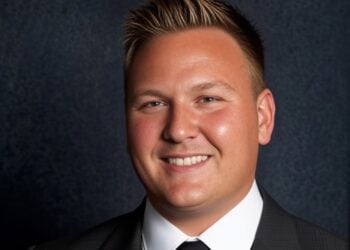Ask Gregg Curry, a managing director for the consulting firm Navigant, what he loves most about his work and he has two answers. First, he enjoys the intellectual challenge that complex cases present. “And second, I really enjoy working with skilled attorneys, who have taught me a lot about the law, strategy and the power of persuasion,” he says.
Curry and three other senior directors – Kevin Cornish, Robert Mroz and Bryce Cook – bring years of expertise in their respective specialties to the disputes and investigations practice of Navigant’s Phoenix office, which also employs seven associate directors and a staff of up-and-coming junior consultants. Navigant’s depth and breadth of experience is impressive, with approximately 2,400 consultants working in a variety of practice areas throughout the world.
Professional Backgrounds
A CPA, Curry has worked for the firm since 1999 and has been in the expert services consulting field for more than 30 years. His work includes litigation disputes, forensic accounting investigations, expert testimony and other areas. While working on his bachelor’s degree in computer science, Curry discovered that what he really enjoyed were the accounting classes that he took, which led to his entry into the consulting profession.
“When I was a senior at Purdue University in 1981, I was taking the auditing class within the school of management,” he says. “My professor happened to have been Alan Peterson’s professor years earlier. Alan really developed the litigation services practice while he was a partner at Arthur Anderson. In 1980, he left Anderson and started Peterson and Company in Chicago, with a few partners and a small staff. He sent my professor a letter, telling him about the new firm, and that he was interested in hiring someone who might be a good fit in the litigation services field, as opposed to the traditional accounting services. Professor Lawrence thought of me, gave me the letter, told me to call him if I was interested. Well, it sounded a lot more exciting than auditing inventories, so I interviewed and got the job.”
Kevin Cornish, another managing director, is a former clinician who leads Navigant’s health care disputes and investigations practice segment. He notes that he has worked in health care in some capacity since he was 14 years old and since 1985 as a clinician and professional. It was the combining of the medical and legal professions that attracted him to a consulting career.
“I enjoy working on unique and complex issues that meld knowledge of the law with knowledge of the health care industry,” Cornish says. “The practice offers deep industry and content knowledge expertise for all facets of the health care industry to attorneys who require experts to help synthesize and translate complex health care data, medical records, claims and contracts in concert with state and federal regulations.”
In addition to helping clients sort through the complexities of health care law, Cornish also edits Navigant’s Healthcare Week in Review. The weekly digest covers national news and events in health care litigation and investigations. Cornish’s team includes Melissa Hulke, Chris Castro and Jim Rough, associate directors who provide Navigant’s health care clients with a broad range of services, including compliance audits and forensic assessment of billing and coding claims.
One of the reasons Navigant director Bryce Cook, who focuses in intellectual property litigation and other areas, came to the firm was because he appreciated the depth and breadth of experience of its professionals. “No matter the industry, business or market niche, someone at Navigant knows it and has experience with it,” he says. “And when it comes to the attorneys, I like working with intelligent people who are always thinking two steps ahead.”
Cook has worked in his consulting role for 27 years. He came to the career while studying for his MBA at Arizona State University.
“I was a research assistant for the chairman of the finance department, Richard Smith,” he recounts. “Smith hired me part time to assist him in his economic consulting practice and gave me a lot of good experience and advice.”
Navigant director Robert Mroz also traces the beginnings of his 28-year consulting career to his graduate school experiences. He helps clients in business disputes related to real estate, manufacturing and other areas and provides expert testimony.
“My entry into this line of work goes back to my days in my MBA program at the University of Hawaii, working on case studies in class and for local businesses,” Mroz says. “That is what we do every day and I was drawn to the challenge to analyze and resolve the issues presented.”
Firm Culture and Style
Both Mroz and Cornish characterize Navigant’s culture as entrepreneurial and collaborative, with a strong customer focus.
“Working in teams with quality professionals is a great way to spend your day,” Mroz says. “I enjoy the ability to pick up the phone and be able to talk to experts in their fields whenever I or a client has a question or needs input on a case. That is truly a luxury you can’t get at every firm.”
In addition to filling the role of business generators for the firm because of their experience and reputation, the firm’s senior leaders also enjoy inspiring its team of younger professionals. For example, Israel Almodovoar focuses on local and international construction project investigations; Brian McNamara, Nate Curtis and Sean Rayment handle business valuation and economic damages matters; and, Mike Phelan specializes in data breach investigations.
“We act as mentors and role models for our younger professionals, teaching them what we do and showing them what an exciting career this is,” Mroz says.
“They bring an additional deep bench of experience in addressing client needs,” Curry adds.
While the senior directors believe in the importance of mentoring their younger colleagues, they also recognize that through their own experiences, they are always learning as well. Curry believes that it is perhaps his work as an expert witness that really keeps him sharp.
“Working as an expert witness in litigation matters, which by its nature is adversarial and confrontational, you have to be prepared, thorough in your thinking and analysis, and intellectually honest,” he says. “Trying to be too smart or cute, trying to avoid answering questions directly, is foolhardy. It’s better to be straightforward and trustworthy. If you lose credibility with your audience, you’re done.”
Community Involvement
Credibility is not only important when it comes to professional and client audiences, but also when it comes to the way the company is viewed in the community. As a global company with multiple office locations, Navigant is committed to being a responsible corporate citizen. It encourages all of its employees to give back. In Phoenix, Navigant is involved in the community in many ways, according to Mroz.
“Several of our professionals sit on local nonprofit boards, assist local charities through Navigant’s Lending a Hand charitable giving program and volunteer in the community for specific charities,” he says.
As one example of a Navigant employee who gives back, Curry has served on a number of nonprofit boards, including Homeward Bound, Arizona Foundation for Legal Services and Education, and most recently for the Arizona Justice Project.
“Each of these organizations is all about helping those in need, and deserves our support,” Curry says. “It is inspiring to see the devotion that the staffs of these organizations display in striving to accomplish their missions.”
Like the community organizations they support, accomplishment is something that all of the Navigant professionals strive for every day. Bringing the right outcomes to their clients is their daily objective. Their combined 125 years of working and consulting with hundreds of clients, combined with a deep bench of local and national practitioners, gives this Navigant team a depth of experience and the availability of resources to meet and address the legal and business challenges their clients face.
“For us, it is going beyond the cookie cutter, formulaic approach that we see too often in this field and thinking broadly and creatively to solve problems,” Cook says.
Curry points to one of his favorite books – “The Power of Positive Thinking,” by Norman Vincent Peale – to explain his philosophy for accomplishment. “I think if you studied all the greatest athletes, the common denominator would be their belief in their ability to succeed. We try and take that same attitude with our work, to find the right solution that works for the client.”









